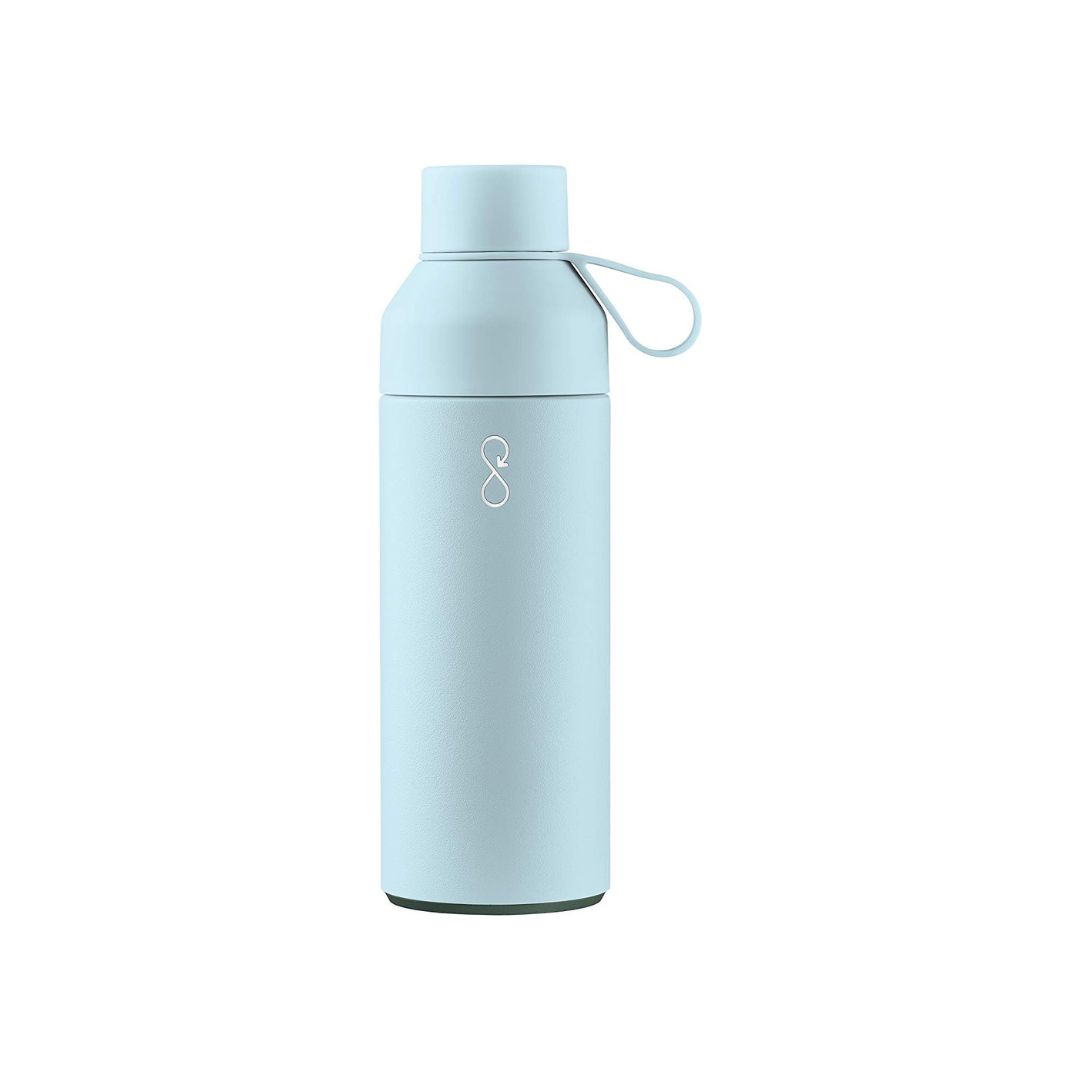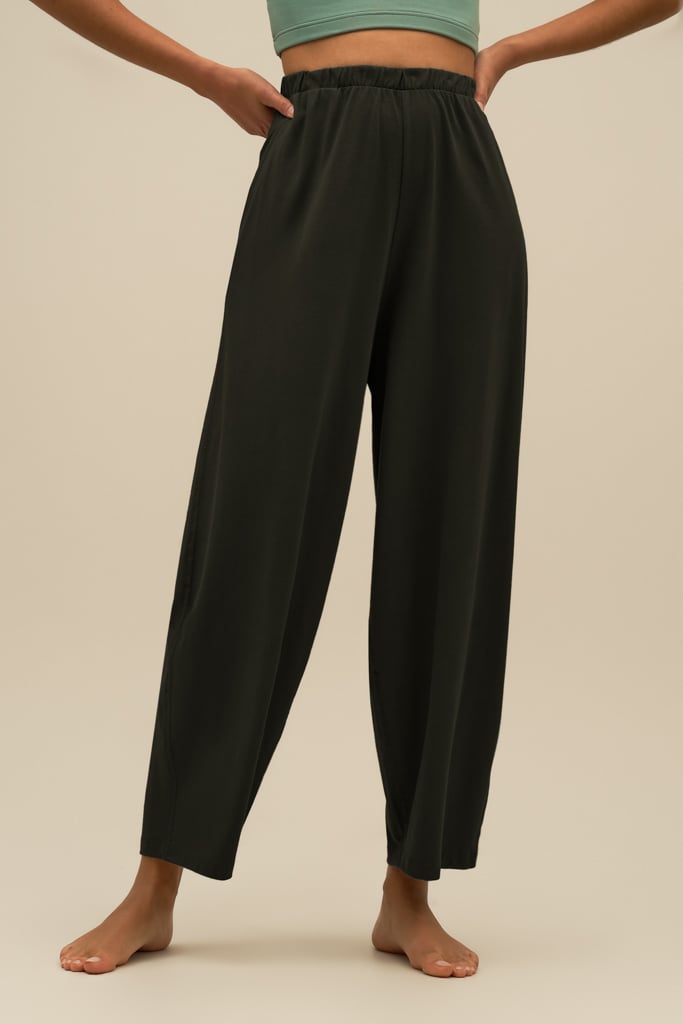Self-hypnosis is soaring in popularity RN - I tried it after hearing that it could boost your mood and mental health from home
Ever tried it?


My knowledge of hypnosis, until only a few months ago, could be summarised in two words: Derren Brown. The entertainer, known as a mentalist and illusionist and famous for his ‘mind control’ performances, frankly freaked me out. Although unsure I actually believed any human could harness the ability to manipulate someone else’s mind, I couldn’t imagine why anyone might risk the potential humiliation (or worse) of allowing someone the opportunity to try. I was aware that some ex-smokers had credited hypnosis with helping them quit the habit (which seemed like a more positive, if less entertaining, use of the technique), but I hadn’t a clue that I – a non-smoker with no desire to compose animal noises on stage – could ever be a candidate. That was until it underwent a rebrand, and emerged a tool for enhancing and supporting wellbeing.
What I didn’t know (ever the sceptic) was that self-hypnosis has always been a health intervention – it’s only in recent years, that we’re collectively seeking and experimenting with alternative therapies, that it’s become widely accepted as a wellness ritual for anyone pursuing improved wellbeing.
At the time of writing, the #hypnosis hashtag has 132k videos to its name on TikTok, many of which discuss the merits of utilising the technique for its mental health benefits, as opposed to broadcasting comedic stage performances. Elsewhere, Reveri, a clinically-backed self-hypnosis app, which offers personalised, guided sessions that mirror the experience of in-person hypnosis, has half a million downloads to date. So, why the seemingly sudden uptick in popularity?
Dr. David Spiegel, a world-leading psychiatrist at Stanford University and creator of the Reveri app, believes that the current health landscape has caused people to seek additional support from outside a GP’s office. “I think people are looking for more efficiency and more non-pharmacological help for problems like anxiety, pain and insomnia,” he says. Research commissioned by Nurofen in 2022 revealed that 56% of women felt their pain was ignored or dismissed by medical professionals; an undeniable factor in the rise of alternative therapies, such as self-hypnosis. If we consider, also, the 25% increase in anxiety and depression post-pandemic, as reported by WHO in 2022, we have ourselves a rather dismal health reality where a lot of people are suffering and desperately searching for help.
This can, of course, be high-risk in some circumstances. In the case of self-hypnosis, however, the science suggests it’s a safe and valuable complementary therapy for most people. To learn more about what actually happens to your brain and body during hypnosis, and how to try it myself, I put my questions to Dr. Spiegel. Keep scrolling to read what he had to say.
Self-hypnosis: your need-to-knows
What is self-hypnosis?
When I ask Dr Spiegel to differentiate stage hypnosis from the self-hypnosis sessions such as those accessible via the Reveri app, it’s clear he’s frustrated. Not at me, but by the entertainment industry; for casting what many consider to be a valuable tool for wellbeing support as something fearsome and humiliating, muddying the science on the subject and causing those who could potentially benefit from the technique, such as myself, to steer well clear – just in case.
What’s actually happening, when an entertainer performs hypnosis on stage, is simply someone experiencing a mindset shift in real time. “The stage hypnotists try to make it look like they have these tremendous powers, but that's not what it's about,” says Dr Spiegel. “It's about shifting your mental state in such a way that you are more open to new and different things. It's what used to be called suggestibility.”
Marie Claire Newsletter
Celebrity news, beauty, fashion advice, and fascinating features, delivered straight to your inbox!
He explains that, throughout a show, the illusionist will be screening the audience to learn who among them is highly hypnotisable, and will therefore be most likely to suspend their critical awareness when taking part in the performance. “That's when you see the football coach dancing like a ballerina,” says Dr Spiegel. “That's forever given hypnosis a bad name. I am really frustrated by it, however, there's actually a hidden message in that, that is powerful.”
Hypnosis, he says, allows you to halt your judgement of yourself and stop worrying about what others think about you, encouraging growth, exploration and change. “That's what you're seeing with the football coach dancing like a ballerina, in a bad way,” Dr Spiegel says. “He's making a fool of himself, but he's saying “what would it be like if I just tried something different?” That is a matrix for real personal and therapeutic change, and that's what hypnosis is.”
There are elements of self-hypnosis that make it seem similar to meditation – you take a calm and comfortable stance, close your eyes and tap into your brain – but the two aren’t the same. While meditation encourages you to distance yourself from your thoughts without changing them, Dr Spiegel explains, hypnosis uses focus and visualisation to change thought patterns, physiological reactions and entrenched behaviour.
Does hypnosis actually work?
Research, including a 2013 study authored by Dr Spiegel, indicates that hypnosis can be a useful tool in modulating pain and relieving anxiety. It goes on to suggest that hypnosis may even help to improve quality of life, reduce pain, and extend survival time with cancer.
A separate study, published in 2016, concluded that learning self-hypnosis techniques empowers patients with irritable bowel syndrome to participate in their own treatment, when used as a complementary therapy, granting them independence.
That said, it’s worth noting that hypnosis is best utilised alongside other treatments, depending on the issue, such as medication or therapy. It’s not a substitute for doctor-advised treatment, in the case where illness is present. Something else to bear in mind: not everyone is hypnotisable – and those who aren’t won’t experience the benefits.
What happens when you hypnotise yourself?
According to Dr Spiegel, there are three things that happen within the brain when you go into a hypnotic state.
“The first thing is turning down activity in a part of the brain called the anterior cingulate,” he says. “It's part of the salience network, and it matches patterns. If there's a pattern that looks threatening, it's like your home alarm system; it goes off and says, “look out”, if you hear a loud noise, it immediately distracts you.” Hypnosis quietens this part of the brain, removing distractions and improving focus. Dr Spiegel likens this sensation with being all-absorbed by a movie or book.
“The second thing is higher functional connectivity between the executive control region and the front part of the brain, the dorsolateral prefrontal cortex and the insula, the insula is Latin for island,” he goes on to explain. “It's a little island of neural tissue in the middle of the front of the brain and it's a mind body conduit, it helps the brain control the body and it helps the body report how it is to the brain. We call that interception.” In hypnosis, you intensify your control over this region that helps you control your body.
The third thing that happens, Dr Spiegel explains, is something called inverse connectivity. “So when one's up, the other is down between the prefrontal cortex and the default mode network, the back part of the cingulate cortex,” he says. “That's a part of your brain where when you're just sort of sitting around ruminating, thinking about who you are, what you're like, what people think of you. I guess it's close to what psychoanalysts call the ego. It's just a part that's evaluating you.” When you enter a state of hypnosis, you turn down activity in this part of the brain. “It quietens the part of the brain that keeps you being the same, that keeps you doing what people expect of you, and you just try out being different,” says Dr Spiegel.
“These things can occur in a matter of seconds, and can happen when I do it, when you do it for yourself on Reveri, or when some idiot stage hypnotist makes you dance in front of people.”
What are the benefits of self-hypnosis?
Self-hypnosis is best for people experiencing what Dr Spiegel calls very common manageable problems, such as stress and anxiety. In fact, 94% of Reveri members said they felt less stressed after using the in-app sessions to deal with feelings of overwhelm.
“Reveri users also love using the app to go to sleep,” Dr Spiegel says, adding that it can help to organise jumbled and chaotic thoughts that prevent you from drifting off. He advises that it can also be beneficial for improving focus and helping with pain control.
The app itself offers sessions for:
What are the negative effects of hypnosis?
While, generally speaking, the consensus is that hypnosis is safe, it’s not for everybody. It may not be suitable for those with a serious mental illness, where symptoms include hallucinations, for example. Care should also be taken to ensure that the level of support you receive lines up with the issue you’re looking to address, so hypnosis for working through traumas may be more suitable with a professional present.
Finally, some people simply aren’t hypnotisable, and therefore don’t experience any benefits.
What happened when I tried self-hypnosis
I’m dubious, but hopeful. I’ll try anything that claims to improve my focus and the paralysing procrastination I face every time I sit down to write. If the app prompted me to spin on my head while reciting Taylor Swift lyrics, I’d give it my best shot. Thankfully, Reveri didn’t do that.
Instead, it instructed me to take a 10-minute test to determine my personal level of hypnotisability. I have to roll my eyeballs up before closing my eyelids and letting my arm – supported by the arm of a chair or something similar – float up. It doesn’t float by itself, so I have to help it up. After the test, my results are delivered. Along with roughly 60% of people, I am declared moderately hypnotisable, otherwise known as a ‘diplomat’. I’m informed that I have a ‘balanced approach to thinking’, and that I can be ‘highly critical’ but also ‘trusting and open-minded’. Sounds about right.
Feeling as though I failed the test, I ask Dr Spiegel if I’m doomed to this level of hypnotisability forever. He says yes, “but that’s plenty. Most people are like that.”
Over the following week, I try out a few sessions with the specific goal of improving my focus. Each one lasts 5-10 minutes, and while some are interactive – I’m prompted to answer basic questions throughout – others are listening only. I’ve heard people describe being in a state of hypnosis as though you’re in a trance. It doesn’t feel like that for me, but it does feel calming, and my whole body softens. I remain tuned into my surroundings (whether I’m supposed to or not, I’m not entirely sure), though intentionally tapped into my thoughts.
In the sessions, which are guided by Dr Spiegel, you’re told to imagine a screen of some sort that you can watch your thoughts unfold on. During one, where I’m encouraged to picture a peaceful place, I project memories of my mum’s previous home onto the fictitious screen. I imagine myself peering out of her living room window at the mountains; gulping sugary tea at the kitchen counter; plodding through puffs of snow to see the view of the lake at the top of the neighbouring mountain. When the session ends, I can’t tell if I’m feeling more focused, but I’m definitely more relaxed – if not a bit peeved that what follows is a rainy desk day as opposed to a countryside hike.
During another session, I’m prompted to broadcast a problem I’m having on the imaginary screen, and break it down so I can eventually visualise the solution. But I’m unprepared, and for the life of me I can’t think of an issue that needs resolving. Of course, like everyone, I have plenty of them, but I feel under so much pressure to conjure a problem, I instead spend the entire 10 minutes stressing that I’m not doing it right. When I mention this to Dr Spiegel, he says that I’ve just given myself a very good example of what my problem is.
“There was nobody – not me, not anybody else – telling you that the problem you had picked was maybe not the right one or not important enough, except you,” he says. “I suspect that that's what hinders your focus; that you have too many choices in front of you, and rather than allowing yourself to do a lousy job – but do it – you're self critical enough that you'll probably find something wrong with it.” Bingo. Nevermind mind control, I feel like I’m having my mind read.
Dr Spiegel explains that what’s most likely interfering with my focus is that I’m honed in on the outcome, as opposed to the process. I’m getting so distracted by the end result, that I struggle to be present. He’s not wrong.
He does assure me, however, that regularly practising hypnosis will help me improve my focus. “It’ll turn down the part of your brain that is wondering what people will think, will it turn out right, or am I really good enough,” he says. “It’ll help you to suspend your evaluation of yourself and just get into the experience of doing it.”
I have a hard time trusting that my focus issues could be fixed while I lay in bed, arm aloft and mentally traversing the countryside, but I’m too intrigued (and desperate) to not give it a solid go. So, I’ll be continuing to include self-hypnosis in my daily routine moving forward – although with less judgement of myself, I hope.
Shop MC UK's go-to workout kit now:

Make your home sessions that bit more comfortable with a sustainably designed Yogi Bare mat.
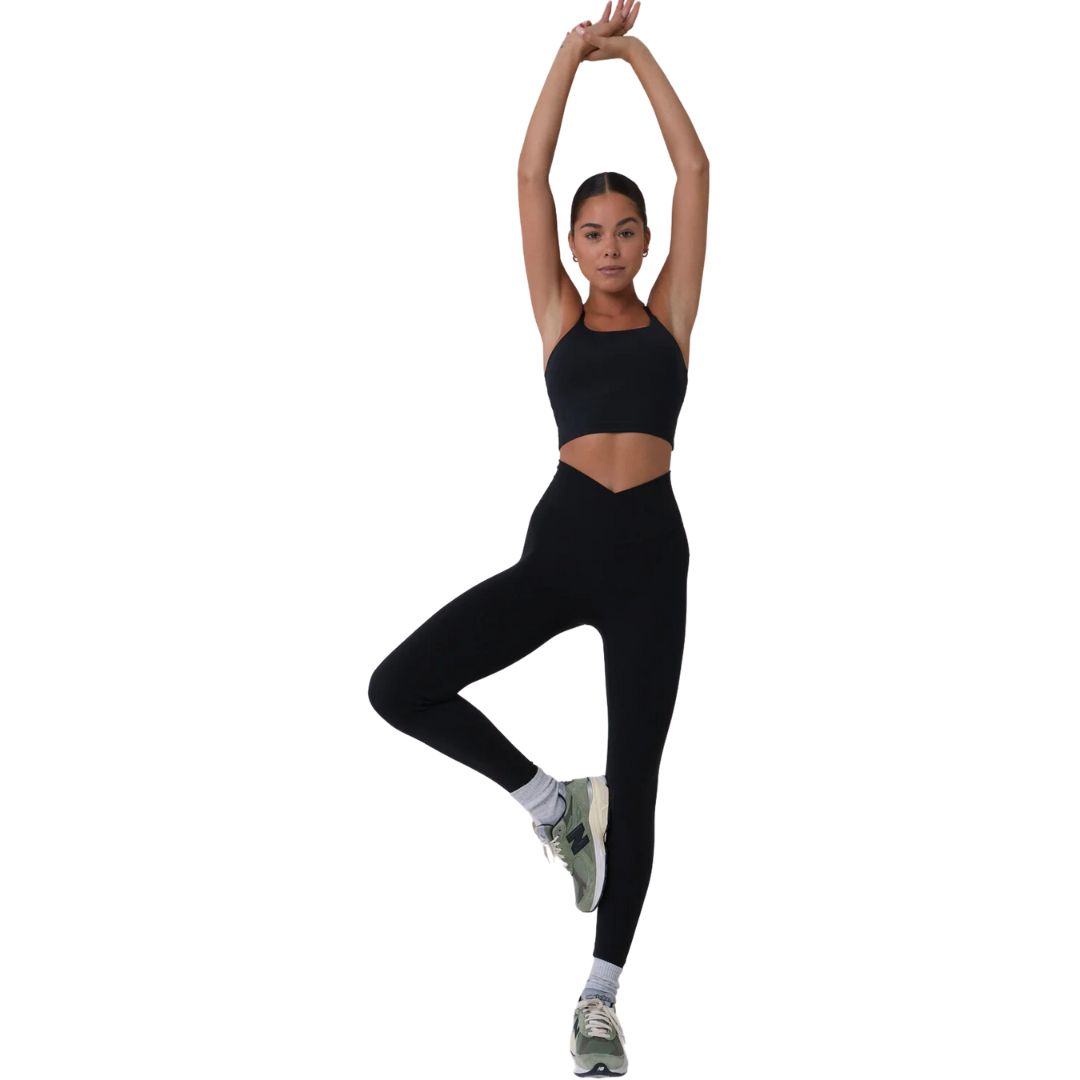
The best workout leggings you can buy? They're certainly up there, and an affordable price point, too.

Abbi Henderson is a freelance journalist and social media editor who covers health, fitness, women’s sport and lifestyle for titles including Women's Health and Stylist, among others.
With a desire to help make healthcare, exercise and sport more accessible to women, she writes about everything from the realities of seeking medical support as a woman to those of being a female athlete fighting for equality.
When she’s not working, she’s drinking tea, going on seaside walks, lifting weights, watching football, and probably cooking something pasta-based.
-
 How are Trump’s tariffs affecting the fashion industry?
How are Trump’s tariffs affecting the fashion industry?The fluctuating situation in the US is having very real consequences
By Rebecca Jane Hill
-
 Here's every character returning for You season 5 - and what it might mean for Joe Goldberg's ending
Here's every character returning for You season 5 - and what it might mean for Joe Goldberg's endingBy Iris Goldsztajn
-
 Celine's new Selfridges pop-up is an ode to summers on the French Riviera
Celine's new Selfridges pop-up is an ode to summers on the French RivieraA one-stop-shop for the ultimate holiday wardrobe
By Clementina Jackson
-
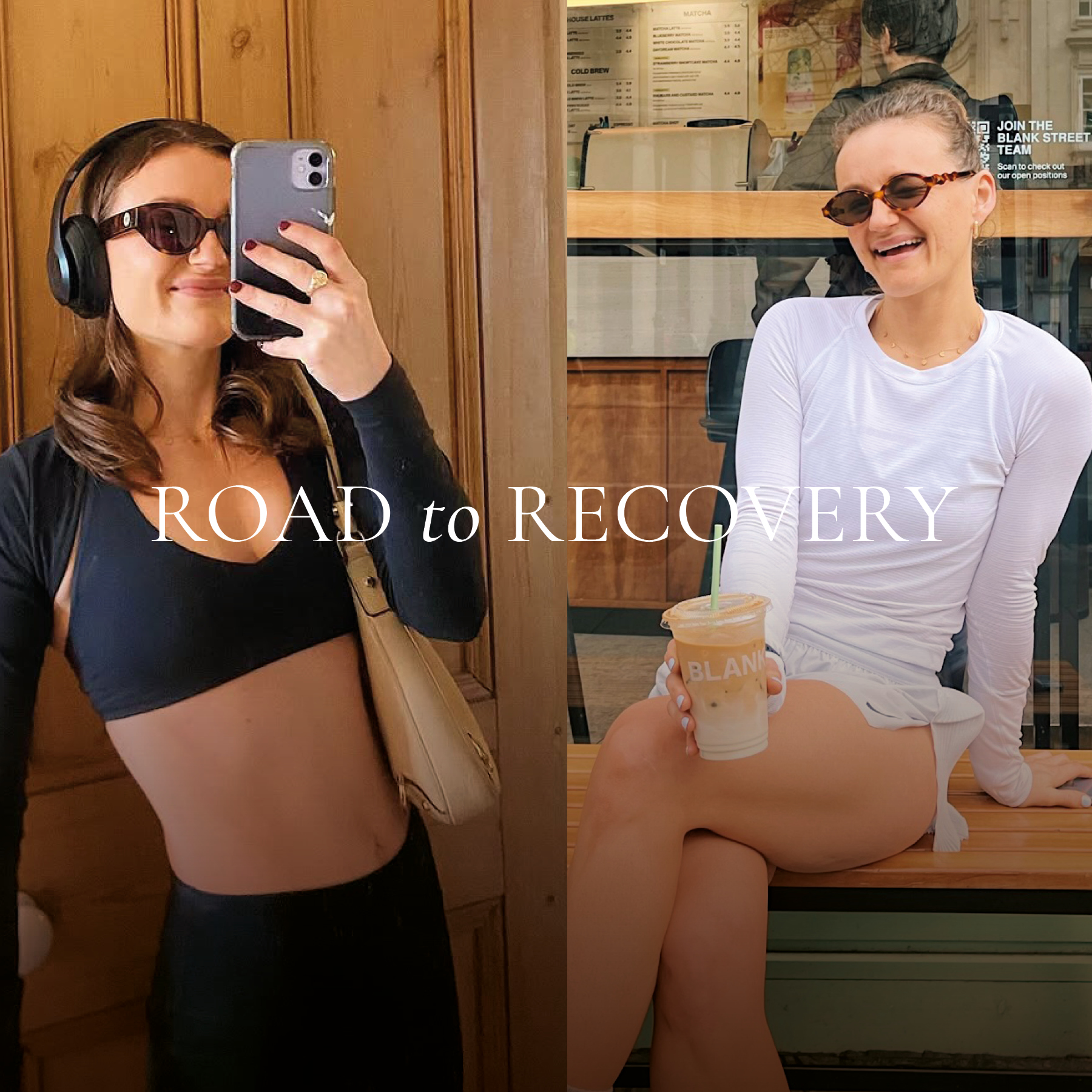 Road To Recovery: I'm a Health Editor and marathon runner who’s long struggled to make recovery a habit - enter, my lazy girl's guide to R&R
Road To Recovery: I'm a Health Editor and marathon runner who’s long struggled to make recovery a habit - enter, my lazy girl's guide to R&RRecovery is all too easy to skip when you’re busy, but it’s as essential as working out to boost wellbeing - which is where these handy tips come in.
By Ally Head
-
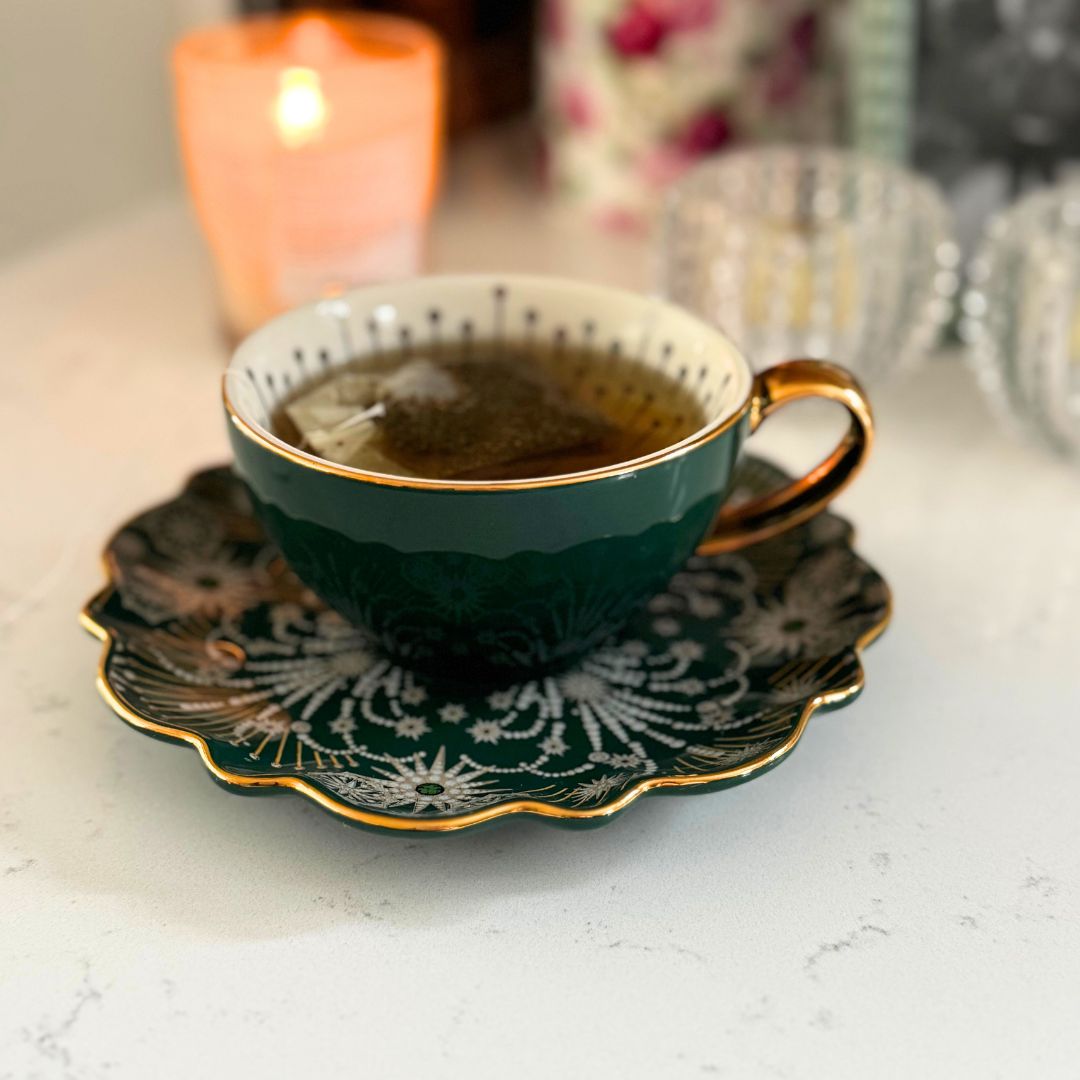 I tried TikTok's lemon balm tea for a week to see if it can really help to reset your nervous system - my honest review
I tried TikTok's lemon balm tea for a week to see if it can really help to reset your nervous system - my honest reviewSit back and pour yourself a cup of calm.
By Anna Bartter
-
 The entire UK seems to be obsessed with saunas RN - 9 benefits to know about, if you're considering giving them a go
The entire UK seems to be obsessed with saunas RN - 9 benefits to know about, if you're considering giving them a goEnter your Scandi girl era.
By Anna Bartter
-
 Wellness Escapes: I went to Bali in search of winter sun, I came home with a new lease of life
Wellness Escapes: I went to Bali in search of winter sun, I came home with a new lease of lifeThis White Lotus-style sanctuary taught me how to relax
By Mischa Anouk Smith
-
 As Mel Robbins' Let Them theory gains global traction - how the simple tool promises to transform your life
As Mel Robbins' Let Them theory gains global traction - how the simple tool promises to transform your lifeNot to mention, help you take back control.
By Katie Sims
-
 I tried Jennifer Aniston's 80/20 approach to wellness - and can't tell you how refreshing I've found it
I tried Jennifer Aniston's 80/20 approach to wellness - and can't tell you how refreshing I've found itIt's all about balance.
By Katie Sims
-
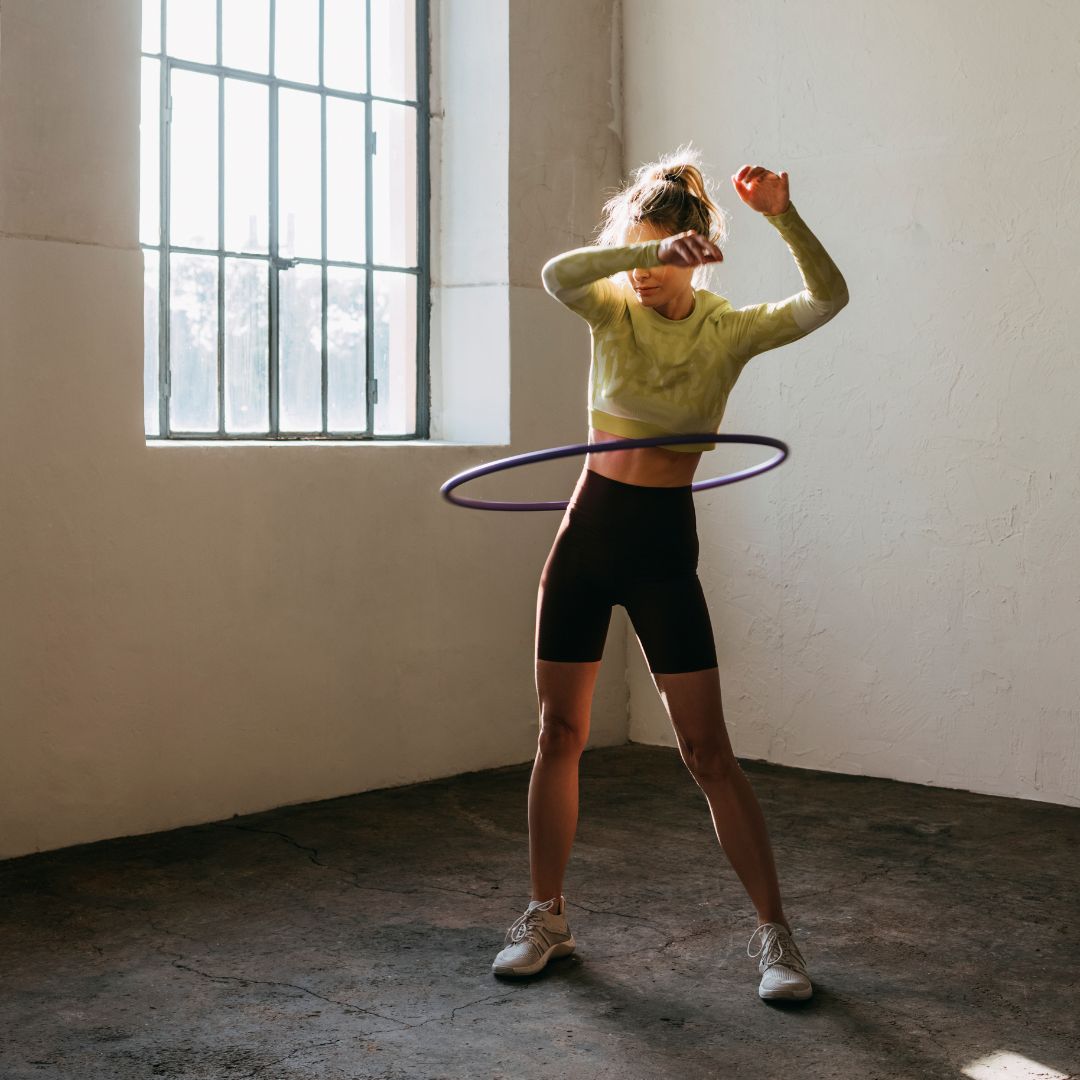 It's one of the most fun home workouts you can do: 6 best exercise hula hoops to add to your fitness regime
It's one of the most fun home workouts you can do: 6 best exercise hula hoops to add to your fitness regimeThey're very affordable, too.
By Amelia Yeomans
-
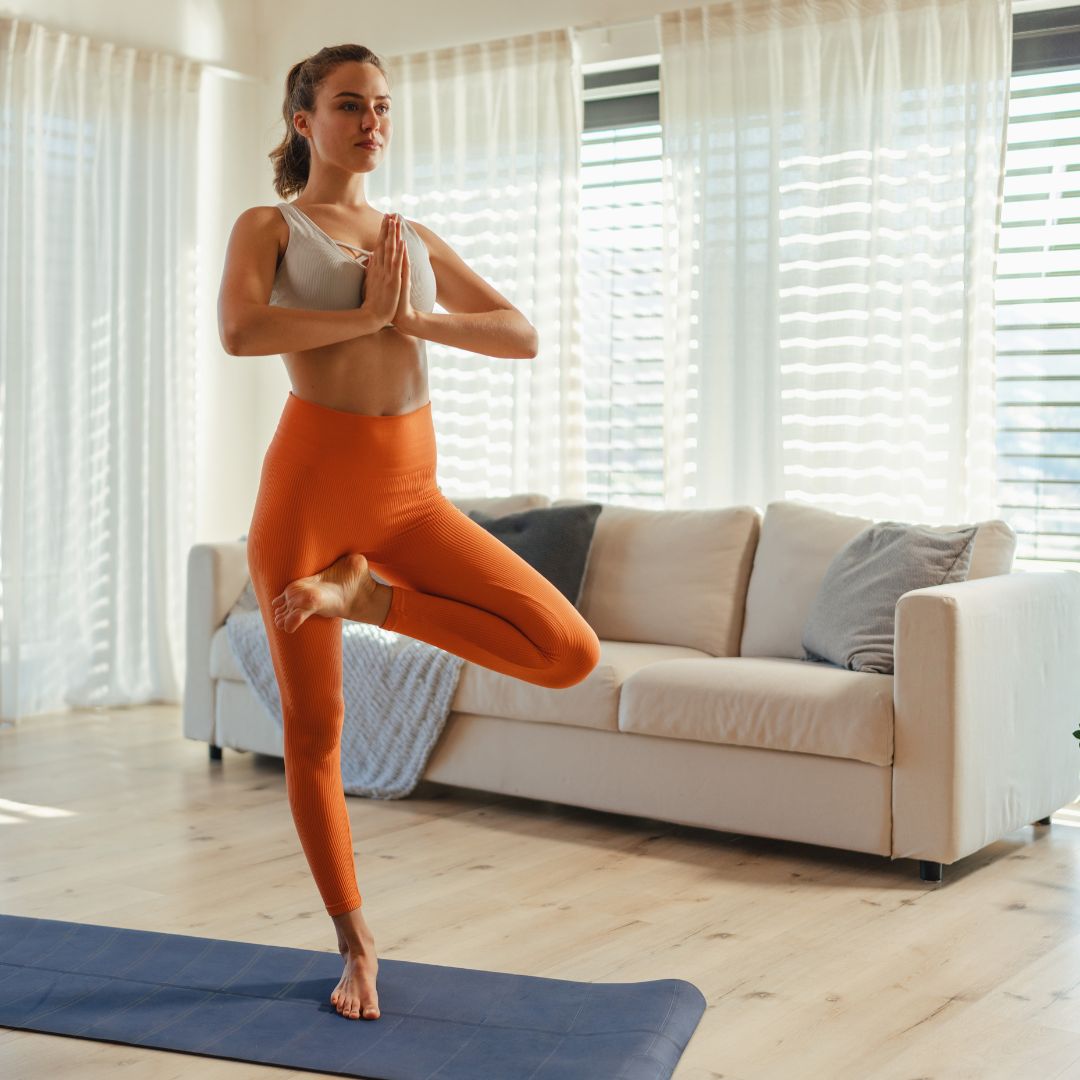 Short on time and motivation? These are the 20-minute yoga workouts instructors do themselves from home
Short on time and motivation? These are the 20-minute yoga workouts instructors do themselves from homeIt turns out, a little bit of yoga goes a long way.
By Rebecca Shepherd
